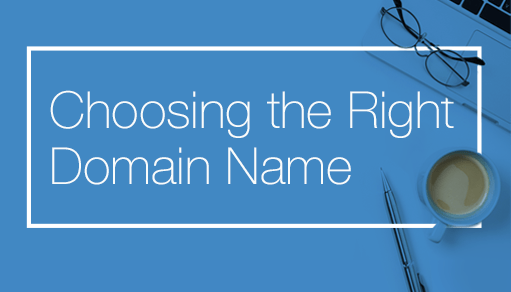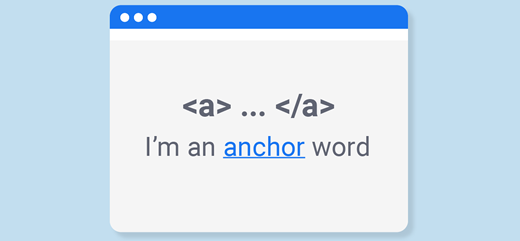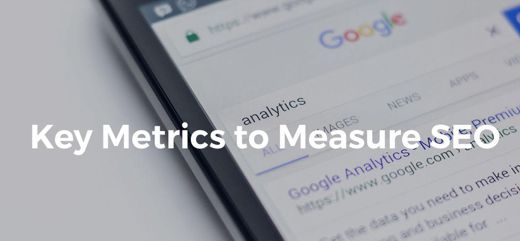Ways to Boost the Domain Authority of Your Website
Domain Authority falls under the category of Off-page SEO metrics.
It's a predictive ranking score developed by Moz that estimates how likely a website is to rank in search engine results pages (SERPs).
While not an official Google ranking factor, it's considered part of off-page SEO because it primarily measures external factors like:
- The quantity and quality of backlinks pointing to your domain
- The authority of the sites linking to you
- The overall link profile of your website
Unlike on-page SEO factors (which focus on content optimization and technical elements within your website), Domain Authority looks at external signals that indicate your site's reputation and trustworthiness across the broader internet ecosystem.
7 Tips For Choosing a Domain That Will Help Your SEO
The number of factors that affect the SEO of websites not only increases on a regular basis, they also change frequently. Some are complicated, and others are straightforward. One factor that you might think has little or no impact is the domain name of your website, however, it does play an important part. Here are 7 tips which can help to improve your SEO efforts and your Google ranking when choosing your domain name correctly.
Keep Your Domain Name Length To 15 Characters Or Less.
If you were to analyse the domain names of the top 100,000 ranked websites on Google, you will find that their average length is 9 characters or less. Shorter domains names are much easier to remember and share in terms of people passing on or recommending your website. For example, compare www thebusinessandinvestmenttoptipswebsite.com to www.biztips.com. and it is clear the latter is far more desirable.
Check To See If Your Domain Is Available On All Your Social Media Channels.
Choosing the right domain name with the huge and ever-increasing importance of social media, it is no surprise that it plays a role in Google rankings. The authority of sites such as Pinterest, Facebook, and Instagram, means that having a presence on them and other social media sites can boost your SEO efforts.
For this reason, you should first check to see if any of the domain names you are considering are also available on social media platforms. A great tool for this is ‘knowem.com’ where you can enter a name and it will check hundreds of social media sites to see if it is still available or not.
Is Wix Bad For SEO?
November 21, 2018Technical SEO
For those of you who are unfamiliar with Wix let us briefly explain what it is. Wix is a cloud-based, open-source, all-in-one website builder that is particularly liked by beginners and those who have no idea how to code HTML. It has flexible designs that allow for a reasonable level of personalisation and is suited for building small to medium-sized websites. It is also popular due to the excellent customer service provided by their in-house support team who are known to be extremely responsive and very professional.
Hopefully, that all sounds positive so far, which brings us to something where Wix's reputation is not as high, and that is regarding SEO. This most likely stemmed from Wix's early days where it quickly became known for many issues which were hindering webmasters and SEO experts from optimising websites built with it.
Some of these issues included being unable to optimise title tags and meta descriptions for blog posts, a URL structure that would generate weird characters and add them to URLs, being unable to add alt attributes to media such as images, and the use of Flash technology which was seen as detrimental to a website's rankings.
It is not surprising that with all these issues in play, Wix's reputation hit rock bottom amongst SEO professionals. Even today, there are still many articles and comments online which suggest Wix should be given a wide berth if you are considering building a website with it and want to use SEO to help it rank.
How To Optimize Your Website Images For SEO
September 25, 2018Image Optimisation
It should be safe to assume that your business website contains images; if it doesn’t, then the question has to be, ‘Why not?’. Images are a great way to engage with, inform and entertain customers, but what many website owners don’t realize is that images can also play a role in onsite SEO. More importantly, there are some simple steps you can take about the images on your website that can boost your site’s ranking in the eyes of Google.
In hindsight, using the term ‘eyes of Google’ might be a tad misleading because, despite all their top-level programming and sophisticated algorithm updates, Google cannot see the images on a website as human eyes see them. Their spiders which crawl the internet and analyse websites, can only recognise text. This means that no matter how colourful, large, exciting, or high-quality any website image is, Google will not see that.
This means that for Google to know that your images are relevant to your website's content and subject matter, you need to add something called ‘alt text’.
For example, if you had a website selling sports shoe products, one of those products was Nike Air Jordan 14 Retro, you would likely have a page for this product and an image of them. When you upload the image, you will enter alt text such as ‘Air Jordan 14 Retro Sports Shoes’. Now, when Google’s spiders come calling, they will be able to read that text, and therefore the page gets more ranking juice for that keyword phrase.
4 Steps To Fix A Drop In Your Rankings
September 25, 2018Ranking Factors
As soon as they sense a drop in their ranking many business owners panic and think that they are on the slippery slope to page 5 of Google. Thankfully, in most cases the situation is temporary, and even if the drop is sustained, there will be an explanation for it.
What it will mean is carrying out some simple checks to determine why the ranking drop happened. Some of those checks will involve using SEO research tools so it might mean you need to employ a SEO consultancy or agency to carry them out.
Here is a guide to 4 of those checks that can be made in order to find the culprit and reverse the drop.
#1 Is Your Website In Full Working Order?
It is astonishing that many business owners do not look in on their website on a regular basis, and so if anything happens to go wrong on it, they do not become aware of this until their rankings start going south.
There are some really basic things you need to check such as the expiry dates of your domain registration or your hosting. Yes, it does happen that a website disappears from rankings because the business owner forgot to renew their hosting service or their domain.
Also, check if your hosting company is having any problems or outages. While most hosting services will be up well over 99.5% of the time, it could be that 0.5% downtime that is the issue.
Simple Keyword Strategies To Outrank Your Competition
The internet has billions of web pages, and many of them are competing to be noticed by Google in order to move up the search rankings for that coveted page one of results. There are lots of SEO tactics and strategies that will help achieve this, and one of the most important is optimizing the page for the keywords you want to rank for. Here are some very simple ways to ensure that any, and all web pages on your website have the best chance of improving their ranking with the use of keywords.
Researching Keywords
The mystique surrounding keywords, and how best to optimize for them has led to countless theories and complicated strategies about how it should be done. In reality, optimizing a page for keywords is not that difficult, and only requires some very straightforward actions.
Keywords for SEO
The first of these is to do proper keyword research to establish which keywords and keyword phrases you need to target to be able to challenge those sites which currently occupy the first page of results within your niche. There are numerous keyword research tools available, with the most obvious one being the free AdWords keyword tool that Google offers.
If you really want to dig deep, to the extent that you know what keywords your competitors are targeting, how highly they rank for those keywords, and where they are getting backlinks from, paid tools such as Ahrefs can give you all that information. It cannot be stressed enough how important this sort of keyword research is. It can mean the difference between knowing exactly what keywords to target and then creating the content to match versus aimlessly creating content that achieves nothing.
The Correct Ways to Use Anchor Text to Improve Your SEO
Whenever you create a backlink you can either have it be displayed as the URL that is pointing to or you can use anchor text which effectively cloaks the link. Using both methods will help your SEO, but anchor text links can have a greater impact in terms of letting Google know which keywords the page the link is pointing to, should be ranked for.
While this is a great way to help your SEO, the danger exists that you could overdo it by using the same exact match keyword every time, and instead of your anchor text links helping your ranking, they hamper it, as Google thinks you’re using spam tactics.
One of the ways to avoid any issues with Google is to mix up the way in which you use anchor text. There are several types of anchor text you can use for links, as you are about to find out.
Exact Match Keyword: Although we have already mentioned you should not overdo it with exact match keywords, it doesn’t mean you should avoid using them. The best way to use this strategy is for each page of content you have on your website targeting more than one keyword phrase. This means that when you are using anchor text in a link, you have more than more exact match keyword you can use when setting up the link back to the page in question.
Naked URL: We mentioned this is in the intro, but we need to emphasize that using the basic URL of the page you are linking to should happen occasionally. Google is far less suspicious of websites that have raw URL links than those which have only anchor text. The obvious benefit of this is higher rankings because you are not thought of as a site that is spamming.
3 Things Designers Need to Know About SEO
When it comes to relevance and visibility of content, every person who is looking to build a good online presence for their company knows the importance of good SEO practices. That being said, a lot of them fail to realize the importance of SEO practices when it comes to the design aspect.
There are some key concepts of SEO which experts are not exactly able to communicate with their designers well enough. That can leave a lot of problems because even if a website looks visually appealing, it might lack the crucial oversight of good SEO practices. That can affect the rankings significantly.
Here is a list of things that designers need to know about SEO in 2018 so that they can bridge the gap between excellent design and good SEO practices.
Mobile First
First things first, Google has made it quite clear for everyone out there that there is a need for optimizing websites for mobile phone usage with responsive design. The number of people using the internet through their mobile devices is more than those using it through their computers and that change in demographic needs to be catered to. Website designers need to make sure that the design of a website should not just be visually good for desktop computers, it can be equally well done but it will be more effective if it is optimized for mobile phone usage as a priority.
Organic Visibility
SEO experts are of the opinion that the website pages should be designed in a way that they are more accessible to search engines. This means the content organization for the website layout has to be on point.
Do Google Ads Improve Your SEO
It is often baffling to see experienced webmasters or website owners who use both SEO and paid advertising (Google Ads), but who never realise they complement each other in so many ways. They are blissfully unaware that by combining both strategies and using some of the data that Google Ads marketing can generate, they could enhance their SEO and rankings further than they already have.
From the outset, we must appreciate that each business’s ability to implement a Google Ads campaign will be tempered by the resources they have, not least of which will be their budget. However, even if you only have the means to set up a few small campaigns, you should do so, for the advantages in relation to your SEO which are set out below.
#1 Gaining Visibility for Keywords at The Top of The SERPs
Whenever you do search on Google at the top of the results you will see three of four listings with a little yellow box that has the word ‘Ad’ in it. This indicates that those listings have used Google Ads to appear there. Apart from the obvious benefit of having a 63% chance of your website link being clicked, being at the top of the paid results can help your organic rankings in the longer run.
Assuming your website is optimised, users who click through will spend time on your site and be clicking through pages, which is seen by Google as a positive. You also gain more authority and trust when you have a paid ad appearing on Google’s results. The goal is to get to the point where you appear at the top of both the organic and paid results. That is when you can really claim to be established.
What Factors Can Impact Google Rankings?
One of the biggest mistakes many website owners make is failing to measure the impact that their SEO activities have made. This is akin to following a diet and exercise program, and then not bothering to check your weight.
There are two specific SEO metrics which Google looks at very closely to see if the visitors they send to a website via their search results are having a good experience. These are ‘Page Views‘, and ‘Session Time’.
If you have a business with an online presence, it is not enough to have people visit your website; you want them to engage with the website and the content therein. The more that they read articles, watch videos and click through multiple sections of your website the better.
The level of engagement that a visitor has with your site, is measured by a metric called ‘page views’. A high number of page views tells you that visitors are taking an active interest in your website, whereas a low number suggests they are disinterested in looking through it.
This data is measured by Google, and if they see that visitors are clicking through to lots of pages on a website they will increase the ranking of that site. The reason for this is that they want their search engine results to show sites that encourage activity. One way this is achieved is with great content that users find interesting.
Compare this scenario to a site which has little or poor content and as a result, visitors very rarely click through to other pages. The page views metric will be low, therefore, Google reduces the ranking of that site.
Ways to Boost the Domain Authority of Your Website
Domain Authority falls under the category of Off-page SEO metrics.
It's a predictive ranking score developed by Moz that estimates how likely a website is to rank in search engine results pages (SERPs).
While not an official Google ranking factor, it's considered part of off-page SEO because it primarily measures external factors like:
- The quantity and quality of backlinks pointing to your domain
- The authority of the sites linking to you
- The overall link profile of your website
Unlike on-page SEO factors (which focus on content optimization and technical elements within your website), Domain Authority looks at external signals that indicate your site's reputation and trustworthiness across the broader internet ecosystem.
7 Tips For Choosing a Domain That Will Help Your SEO
The number of factors that affect the SEO of websites not only increases on a regular basis, they also change frequently. Some are complicated, and others are straightforward. One factor that you might think has little or no impact is the domain name of your website, however, it does play an important part. Here are 7 tips which can help to improve your SEO efforts and your Google ranking when choosing your domain name correctly.
Keep Your Domain Name Length To 15 Characters Or Less.
If you were to analyse the domain names of the top 100,000 ranked websites on Google, you will find that their average length is 9 characters or less. Shorter domains names are much easier to remember and share in terms of people passing on or recommending your website. For example, compare www thebusinessandinvestmenttoptipswebsite.com to www.biztips.com. and it is clear the latter is far more desirable.
Check To See If Your Domain Is Available On All Your Social Media Channels.
Choosing the right domain name with the huge and ever-increasing importance of social media, it is no surprise that it plays a role in Google rankings. The authority of sites such as Pinterest, Facebook, and Instagram, means that having a presence on them and other social media sites can boost your SEO efforts.
For this reason, you should first check to see if any of the domain names you are considering are also available on social media platforms. A great tool for this is ‘knowem.com’ where you can enter a name and it will check hundreds of social media sites to see if it is still available or not.
Is Wix Bad For SEO?
November 21, 2018Technical SEO
For those of you who are unfamiliar with Wix let us briefly explain what it is. Wix is a cloud-based, open-source, all-in-one website builder that is particularly liked by beginners and those who have no idea how to code HTML. It has flexible designs that allow for a reasonable level of personalisation and is suited for building small to medium-sized websites. It is also popular due to the excellent customer service provided by their in-house support team who are known to be extremely responsive and very professional.
Hopefully, that all sounds positive so far, which brings us to something where Wix's reputation is not as high, and that is regarding SEO. This most likely stemmed from Wix's early days where it quickly became known for many issues which were hindering webmasters and SEO experts from optimising websites built with it.
Some of these issues included being unable to optimise title tags and meta descriptions for blog posts, a URL structure that would generate weird characters and add them to URLs, being unable to add alt attributes to media such as images, and the use of Flash technology which was seen as detrimental to a website's rankings.
It is not surprising that with all these issues in play, Wix's reputation hit rock bottom amongst SEO professionals. Even today, there are still many articles and comments online which suggest Wix should be given a wide berth if you are considering building a website with it and want to use SEO to help it rank.
How To Optimize Your Website Images For SEO
September 25, 2018Image Optimisation
It should be safe to assume that your business website contains images; if it doesn’t, then the question has to be, ‘Why not?’. Images are a great way to engage with, inform and entertain customers, but what many website owners don’t realize is that images can also play a role in onsite SEO. More importantly, there are some simple steps you can take about the images on your website that can boost your site’s ranking in the eyes of Google.
In hindsight, using the term ‘eyes of Google’ might be a tad misleading because, despite all their top-level programming and sophisticated algorithm updates, Google cannot see the images on a website as human eyes see them. Their spiders which crawl the internet and analyse websites, can only recognise text. This means that no matter how colourful, large, exciting, or high-quality any website image is, Google will not see that.
This means that for Google to know that your images are relevant to your website's content and subject matter, you need to add something called ‘alt text’.
For example, if you had a website selling sports shoe products, one of those products was Nike Air Jordan 14 Retro, you would likely have a page for this product and an image of them. When you upload the image, you will enter alt text such as ‘Air Jordan 14 Retro Sports Shoes’. Now, when Google’s spiders come calling, they will be able to read that text, and therefore the page gets more ranking juice for that keyword phrase.
4 Steps To Fix A Drop In Your Rankings
September 25, 2018Ranking Factors
As soon as they sense a drop in their ranking many business owners panic and think that they are on the slippery slope to page 5 of Google. Thankfully, in most cases the situation is temporary, and even if the drop is sustained, there will be an explanation for it.
What it will mean is carrying out some simple checks to determine why the ranking drop happened. Some of those checks will involve using SEO research tools so it might mean you need to employ a SEO consultancy or agency to carry them out.
Here is a guide to 4 of those checks that can be made in order to find the culprit and reverse the drop.
#1 Is Your Website In Full Working Order?
It is astonishing that many business owners do not look in on their website on a regular basis, and so if anything happens to go wrong on it, they do not become aware of this until their rankings start going south.
There are some really basic things you need to check such as the expiry dates of your domain registration or your hosting. Yes, it does happen that a website disappears from rankings because the business owner forgot to renew their hosting service or their domain.
Also, check if your hosting company is having any problems or outages. While most hosting services will be up well over 99.5% of the time, it could be that 0.5% downtime that is the issue.
Simple Keyword Strategies To Outrank Your Competition
The internet has billions of web pages, and many of them are competing to be noticed by Google in order to move up the search rankings for that coveted page one of results. There are lots of SEO tactics and strategies that will help achieve this, and one of the most important is optimizing the page for the keywords you want to rank for. Here are some very simple ways to ensure that any, and all web pages on your website have the best chance of improving their ranking with the use of keywords.
Researching Keywords
The mystique surrounding keywords, and how best to optimize for them has led to countless theories and complicated strategies about how it should be done. In reality, optimizing a page for keywords is not that difficult, and only requires some very straightforward actions.
Keywords for SEO
The first of these is to do proper keyword research to establish which keywords and keyword phrases you need to target to be able to challenge those sites which currently occupy the first page of results within your niche. There are numerous keyword research tools available, with the most obvious one being the free AdWords keyword tool that Google offers.
If you really want to dig deep, to the extent that you know what keywords your competitors are targeting, how highly they rank for those keywords, and where they are getting backlinks from, paid tools such as Ahrefs can give you all that information. It cannot be stressed enough how important this sort of keyword research is. It can mean the difference between knowing exactly what keywords to target and then creating the content to match versus aimlessly creating content that achieves nothing.
The Correct Ways to Use Anchor Text to Improve Your SEO
Whenever you create a backlink you can either have it be displayed as the URL that is pointing to or you can use anchor text which effectively cloaks the link. Using both methods will help your SEO, but anchor text links can have a greater impact in terms of letting Google know which keywords the page the link is pointing to, should be ranked for.
While this is a great way to help your SEO, the danger exists that you could overdo it by using the same exact match keyword every time, and instead of your anchor text links helping your ranking, they hamper it, as Google thinks you’re using spam tactics.
One of the ways to avoid any issues with Google is to mix up the way in which you use anchor text. There are several types of anchor text you can use for links, as you are about to find out.
Exact Match Keyword: Although we have already mentioned you should not overdo it with exact match keywords, it doesn’t mean you should avoid using them. The best way to use this strategy is for each page of content you have on your website targeting more than one keyword phrase. This means that when you are using anchor text in a link, you have more than more exact match keyword you can use when setting up the link back to the page in question.
Naked URL: We mentioned this is in the intro, but we need to emphasize that using the basic URL of the page you are linking to should happen occasionally. Google is far less suspicious of websites that have raw URL links than those which have only anchor text. The obvious benefit of this is higher rankings because you are not thought of as a site that is spamming.
3 Things Designers Need to Know About SEO
When it comes to relevance and visibility of content, every person who is looking to build a good online presence for their company knows the importance of good SEO practices. That being said, a lot of them fail to realize the importance of SEO practices when it comes to the design aspect.
There are some key concepts of SEO which experts are not exactly able to communicate with their designers well enough. That can leave a lot of problems because even if a website looks visually appealing, it might lack the crucial oversight of good SEO practices. That can affect the rankings significantly.
Here is a list of things that designers need to know about SEO in 2018 so that they can bridge the gap between excellent design and good SEO practices.
Mobile First
First things first, Google has made it quite clear for everyone out there that there is a need for optimizing websites for mobile phone usage with responsive design. The number of people using the internet through their mobile devices is more than those using it through their computers and that change in demographic needs to be catered to. Website designers need to make sure that the design of a website should not just be visually good for desktop computers, it can be equally well done but it will be more effective if it is optimized for mobile phone usage as a priority.
Organic Visibility
SEO experts are of the opinion that the website pages should be designed in a way that they are more accessible to search engines. This means the content organization for the website layout has to be on point.
Do Google Ads Improve Your SEO
It is often baffling to see experienced webmasters or website owners who use both SEO and paid advertising (Google Ads), but who never realise they complement each other in so many ways. They are blissfully unaware that by combining both strategies and using some of the data that Google Ads marketing can generate, they could enhance their SEO and rankings further than they already have.
From the outset, we must appreciate that each business’s ability to implement a Google Ads campaign will be tempered by the resources they have, not least of which will be their budget. However, even if you only have the means to set up a few small campaigns, you should do so, for the advantages in relation to your SEO which are set out below.
#1 Gaining Visibility for Keywords at The Top of The SERPs
Whenever you do search on Google at the top of the results you will see three of four listings with a little yellow box that has the word ‘Ad’ in it. This indicates that those listings have used Google Ads to appear there. Apart from the obvious benefit of having a 63% chance of your website link being clicked, being at the top of the paid results can help your organic rankings in the longer run.
Assuming your website is optimised, users who click through will spend time on your site and be clicking through pages, which is seen by Google as a positive. You also gain more authority and trust when you have a paid ad appearing on Google’s results. The goal is to get to the point where you appear at the top of both the organic and paid results. That is when you can really claim to be established.
What Factors Can Impact Google Rankings?
One of the biggest mistakes many website owners make is failing to measure the impact that their SEO activities have made. This is akin to following a diet and exercise program, and then not bothering to check your weight.
There are two specific SEO metrics which Google looks at very closely to see if the visitors they send to a website via their search results are having a good experience. These are ‘Page Views‘, and ‘Session Time’.
If you have a business with an online presence, it is not enough to have people visit your website; you want them to engage with the website and the content therein. The more that they read articles, watch videos and click through multiple sections of your website the better.
The level of engagement that a visitor has with your site, is measured by a metric called ‘page views’. A high number of page views tells you that visitors are taking an active interest in your website, whereas a low number suggests they are disinterested in looking through it.
This data is measured by Google, and if they see that visitors are clicking through to lots of pages on a website they will increase the ranking of that site. The reason for this is that they want their search engine results to show sites that encourage activity. One way this is achieved is with great content that users find interesting.
Compare this scenario to a site which has little or poor content and as a result, visitors very rarely click through to other pages. The page views metric will be low, therefore, Google reduces the ranking of that site.










